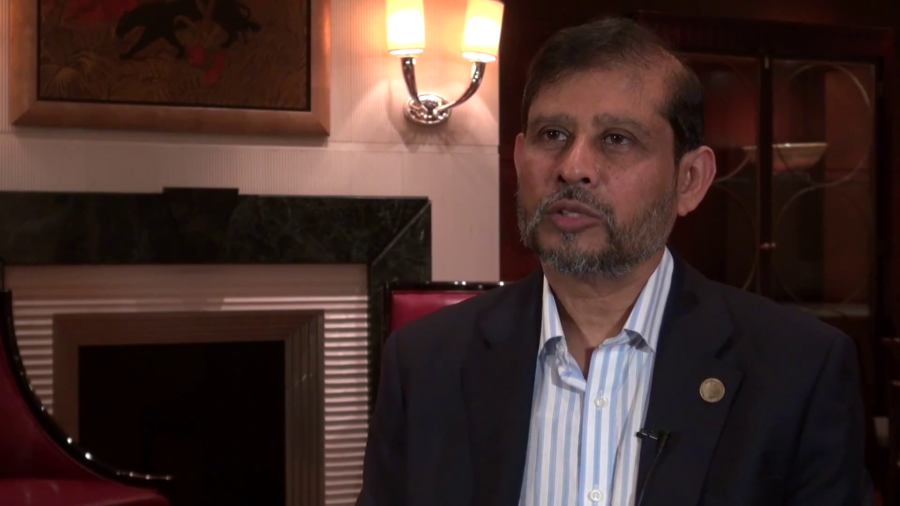Abhaya Induruwa: It all started in the 1984, ’85 period. And very interesting, I visited Hong Kong in 1984 to study their academic and research networking. I also visited three other countries: Thailand, Singapore, and Malaysia. When I went back, I was determined to set up a network for the benefit of academics and the research community in the country. And that’s how it all started.
Intertitle: Describe one of the breakthrough moments of the Internet in which you have been a key participant?
Indurawa: It was not until 1989 I proposed setting up a country-wide network for the academic and research community. I called it LEARN, the Lanka Experimental Academic and Research Network. Again, the funding was not straight away available, and one of the challenges was convincing the policymakers to provide funding. You’ve got to remember that this was a time that people were not carrying smartphones, not having web access and Facebook and tweeting. So it was quite a challenge to convince them to provide funding. So it was around 1992 we were able to get enough funds to set up the network with IP connectivity.
Having got the money, the next challenge was to somehow get the only telecom provider at the time in the country, Sri Lanka Telecom, to set up the network communication channels. So with a kind of persuasion I was able to get three 64 kilobits per second wireless links to connect my university, University of Moratuwa, to two other universities, one in Colombo, University of Colombo, and Open University. And in 1994 we set up the first IP ran in the country.
Intertitle: Describe the state of the Internet today with a weather analogy and explain why.
Indurawa: I would like it to be sunny. But I can see it quite cloudy. I expect the Internet to be for the benefit of humankind, for the common good. But there are certain nefarious actions carried out on the Internet threatening the free flow of information, the open access to information, and so on and so forth. So security is my major concern. So no matter what people do, we’ve go secure the Internet.
Intertitle: What are your greatest hopes and fears for the future of the Internet?
Indurawa: As Vinton once said, we have been using the experimental Internet, IPv4, for the last three decades so it is time to move on to the real production network, which is IPv6. So I expect the introduction of IPv6 right across the globe to provide the necessary connectivity to the devices that we want to connect. Already we are predicting several billions of devices to be connected, what we call the Internet of Things, which will generate enormous volumes of data. And also provide services to ordinary people. So again, my concern is security of the Internet of Things. So no matter we do, we’ve got to make sure that humankind is not harmed.
I hope people will do it. But of course, when it comes to business sometimes people cut corners. As an educator, I feel that we should educate both the young and the elderly who’ll be using the Internet. We should educator software engineers to generate and develop trustworthy software. We have to make sure that security’s embedded in the software development cycle from the very beginning, not an add-on, an afterthought at the end.
Intertitle: What action should be taken to ensure the best possible future?
Indurawa: In terms of action, I like to think, being an educator, that the users should be educated about the potential of the Internet in the first place, and also the threats and other issues that are there when you use the Internet. So I would expect much more emphasis on educating the young, educating the old, at the same time. I would like to see the Internet being used for the common good rather than harming the people. I would also like to see more emphasis placed on secure software development, or software development for secure applications rather than loose type of applications. And there’s this trustworthy software initiative which is actually looking into that aspect right now.
